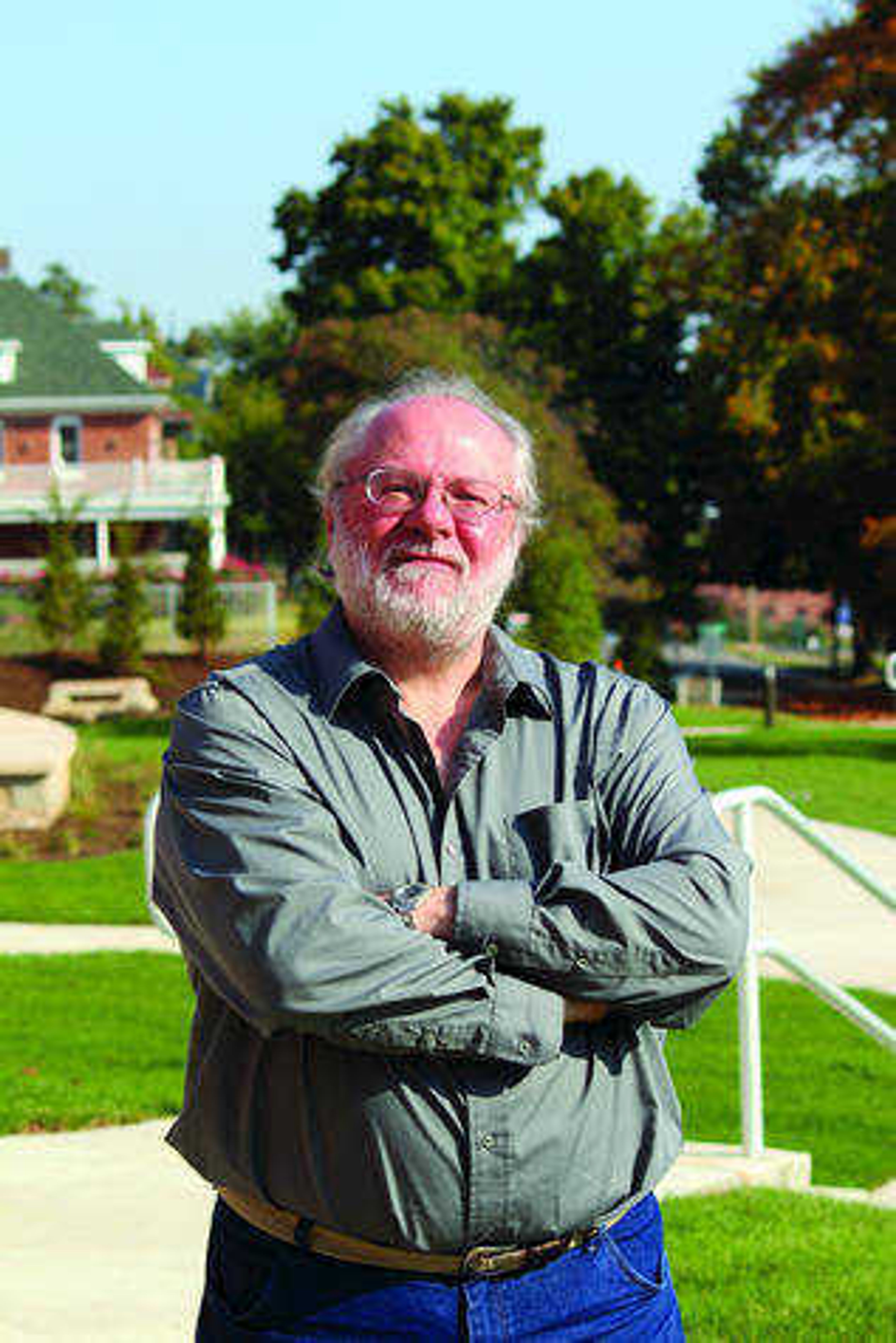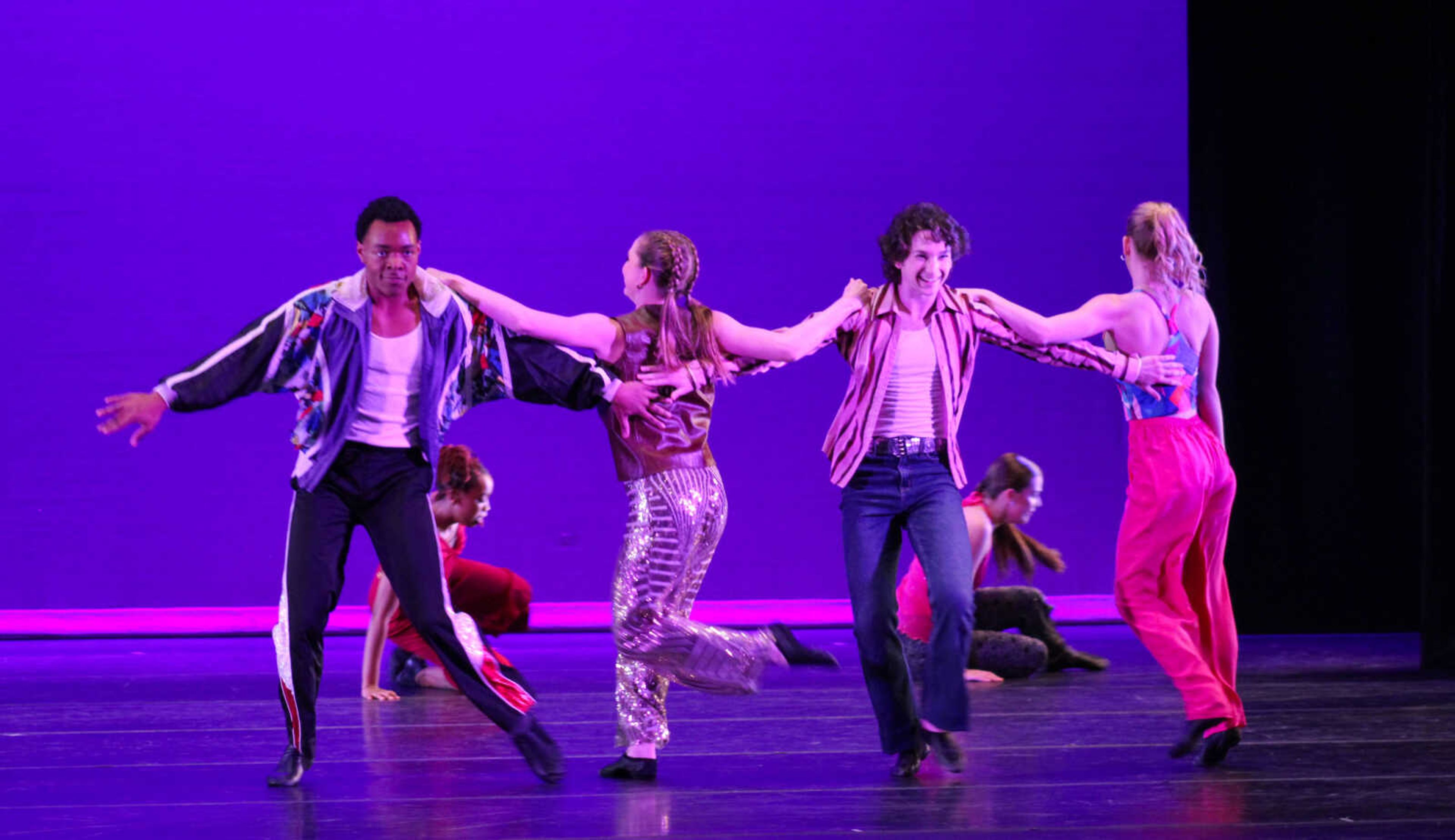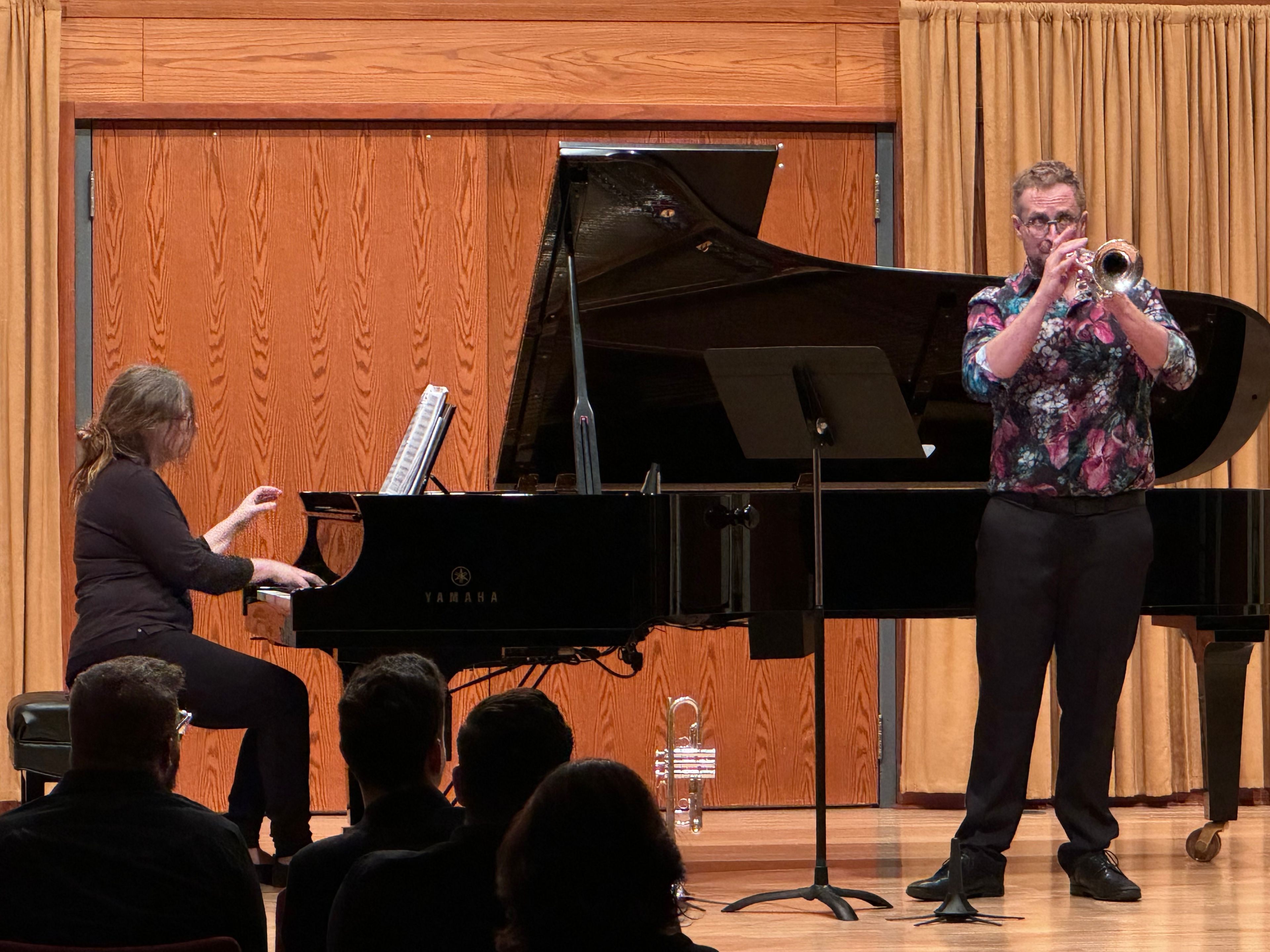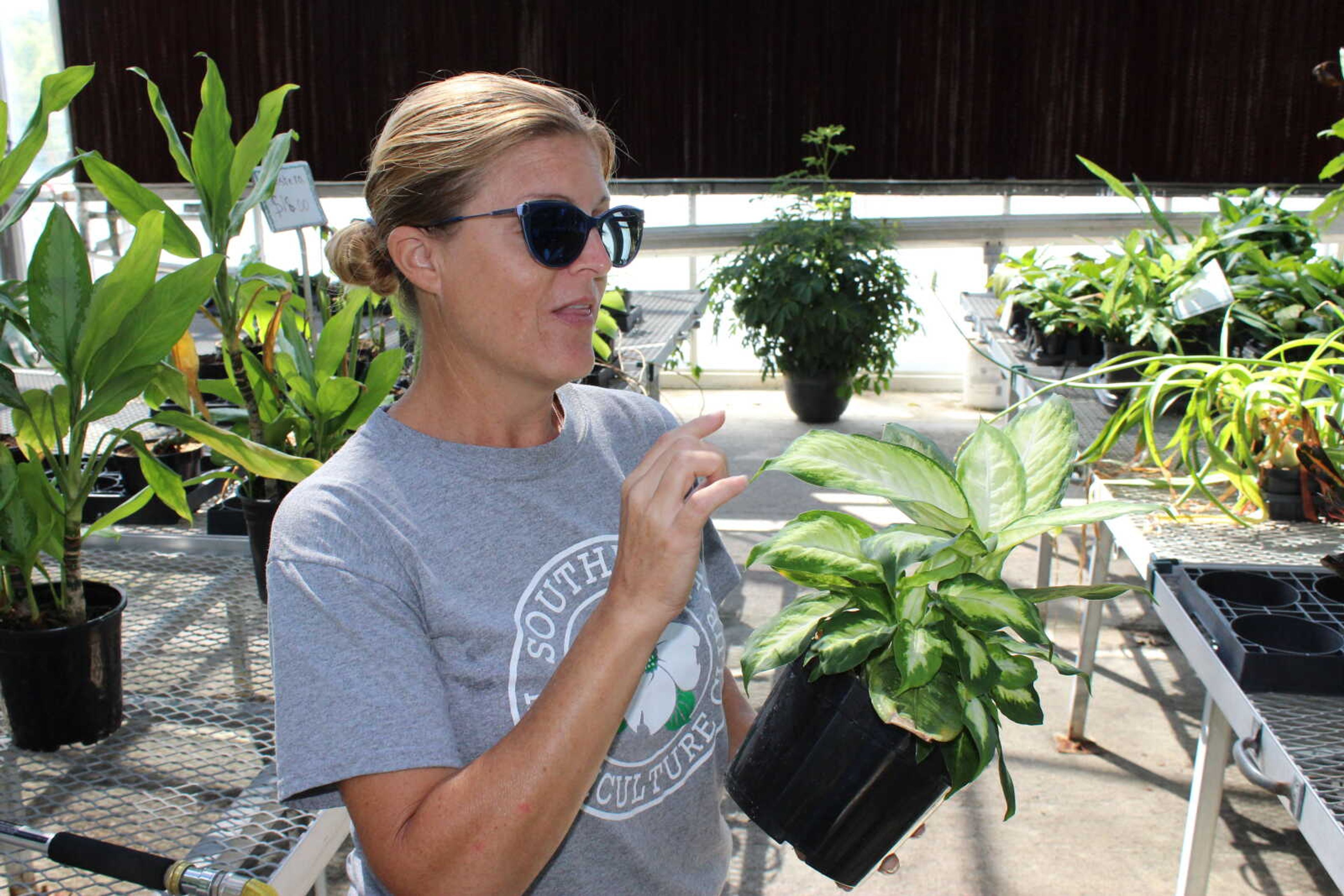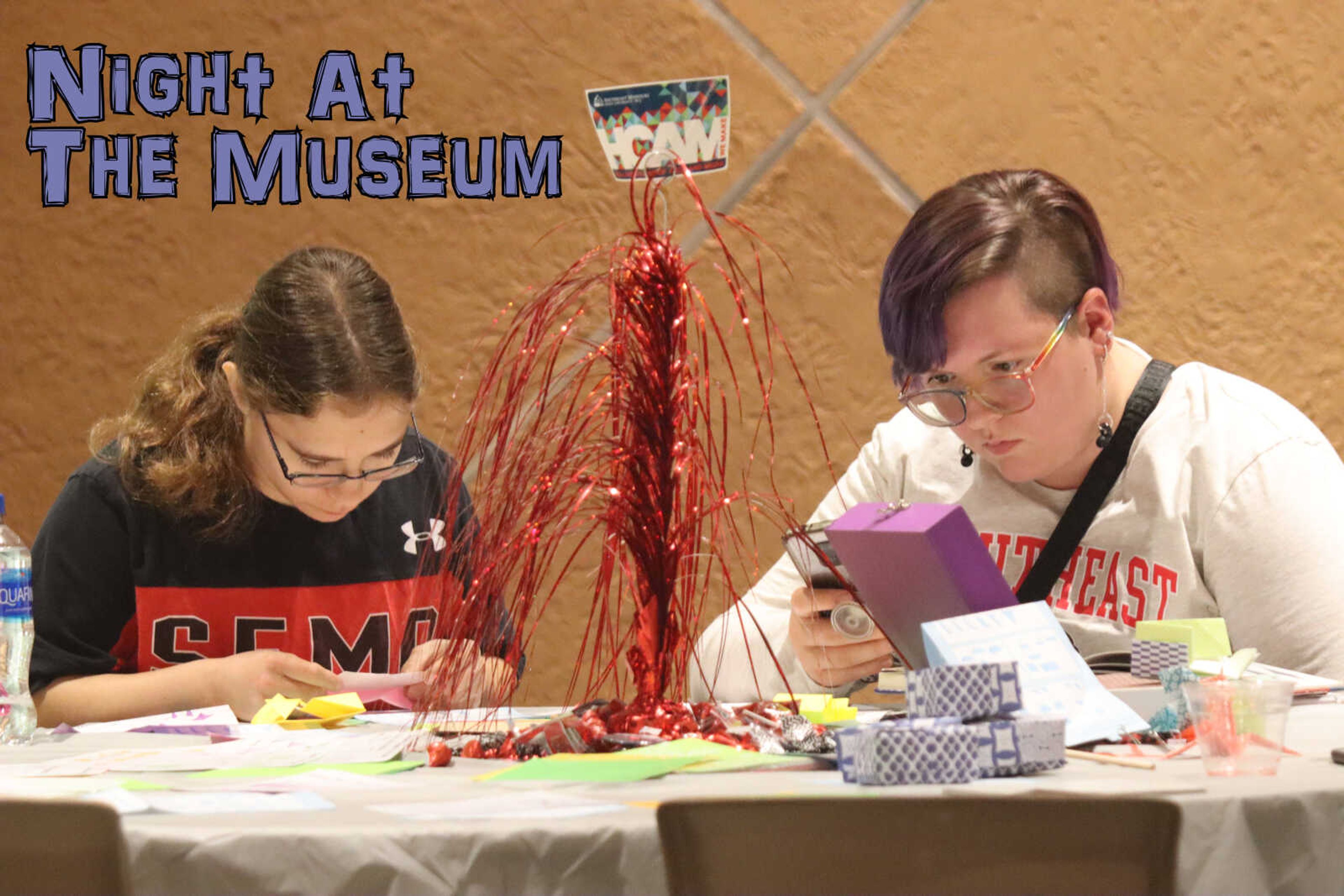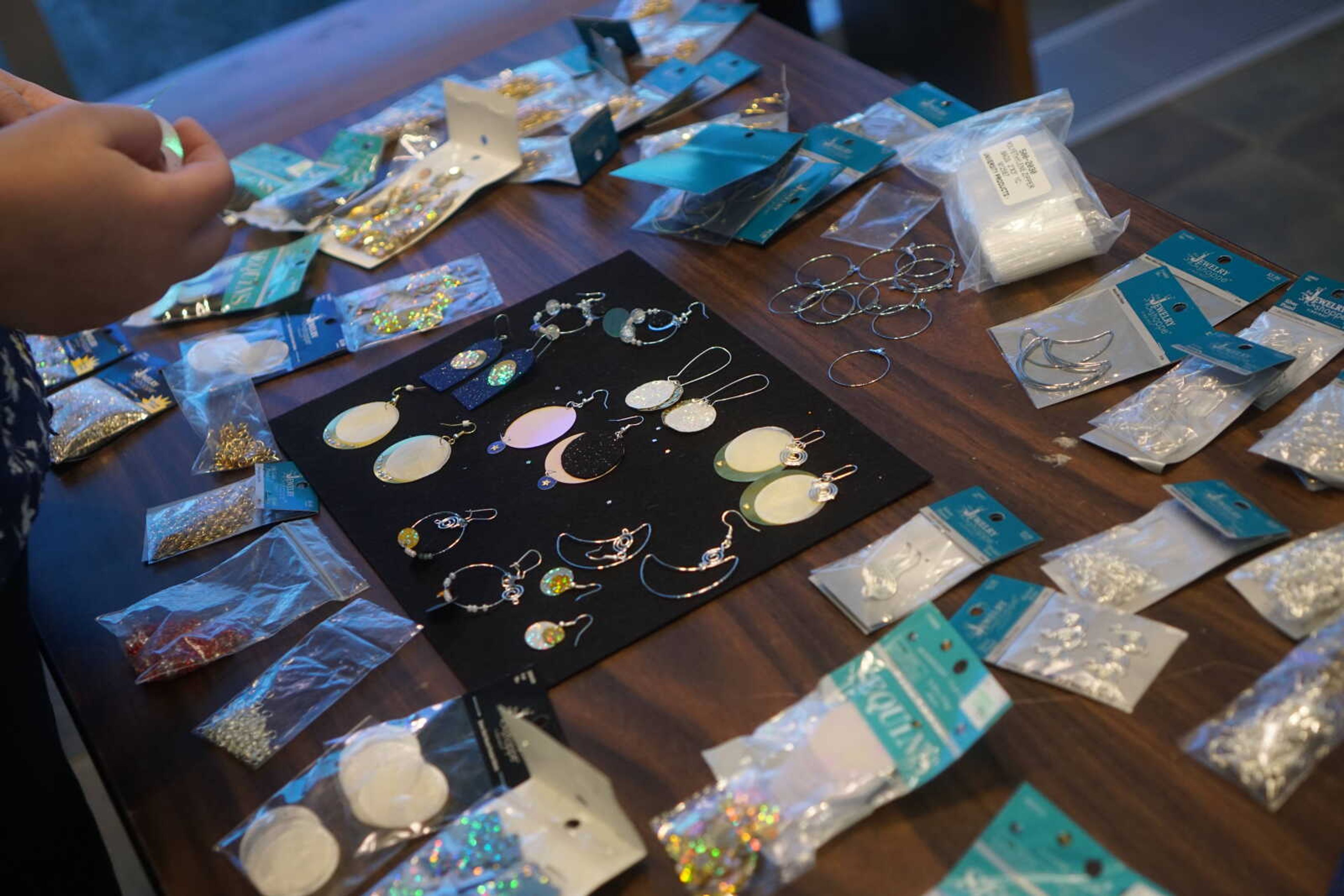Southeast professor receives award for composed opera
Dr. Robert Fruehwald, composer and teacher at Southeast Missouri State University, recently received an award from The American Prize for his opera "Double Blind Sided." Fruehwald, along with help from two former Southeast teachers, Joséphine Garibaldi and Paul Zmolek, composed the opera, which was performed May 13 at Idaho State University, where both Garibaldi and Zmolek currently teach...
Dr. Robert Fruehwald, composer and teacher at Southeast Missouri State University, recently received an award from The American Prize for his opera "Double Blind Sided."
Fruehwald, along with help from two former Southeast teachers, Joséphine Garibaldi and Paul Zmolek, composed the opera, which was performed May 13 at Idaho State University, where both Garibaldi and Zmolek currently teach.
According to Fruehwald, "Double Blind Sided" was chosen by a panel of judges that consisted of composers who had not entered anything into the competition. The foundation, The American Prize, gives awards for a number of different categories in composition such as choral music, orchestral music, theatre music and more. "Double Blind Sided" won in the theatre music division. Fruehwald will receive a packet soon that will show him the comments the judges had on his piece.
Garibaldi and Zmolek's correlation with Fruehwald began back in 2002 when all three of them were professors at Southeast.
"When we were at SEMO, the opportunity to collaborate with Dr. Freuhwald was really one of the major highlights," Zmolek said. "We worked with him three times and each time he came up with brilliant music. He's amazingly prolific and efficient at creating work, and as a collaborator he's absolutely wonderful to work with because unlike some other composers that we've worked with, he totally appreciates and understands that when working in collaboration with theatre artists, with dancers, with choreographers and with directors, that he is one part of an overall project."
Fruehwald was not originally involved in the project, at least not during pre-production. According to Zmolek, the thought of this opera began in 2009. That's when Garibaldi and Zmolek began laying the groundwork for it.
"About two years before we started we asked Robert to do the music for us," Garibaldi said. "This is a project that Paul and I had talked about for a long time. We wanted to devise a work of physical theatre where it was based on Franz Kafka's 'The Trial,' and as we were working on it, we really started developing it and we really wanted to add voice to the idea of the contemporary opera."
Fruehwald has been writing since he was 8 years old. Some of his inspirations are American composers John Adams and Aaron Copland. "Double Blind Sided" is the longest piece he's ever written. It is not something that he usually writes.
"Even for me it's a strange piece, to be honest," Fruehwald said. "...They wanted to do a really big, sort of dance piece, and Paul is particularly interested in what they call physical theatre, which means that you're doing things that are theatrical like actors would do, but you're including movement from dance, so you're sort of dancing all the time while you act. ... It's physical theatre with a musical score with some songs added in."
Fruehwald has several different inspirations for "Double Blind Sided." He looked at pieces by other composers and at different themes in history.
"I think the basic idea is that when modernism was the dominant style in the arts, everybody was trying to do something that was new and different and basically had nothing to do with what was done in the past," Fruehwald said. "And one of the things they found out was even if you did abstract art, it always looks like something.
"... So post modernism is an art movement, and it's in theatre and music, too, where you realize everything looks like something, usually something from the past, and then you put references in on purpose. For example, this was a new play, essentially, but it made references to Kafka's 'The Trial.' So anyway, I was trying to think about what my references should be and what music would be associated with that sort of authoritarian government around the turn of the 20th century and the thing that actually came to my mind was Czarist Russia. You know, pre-communist Russia, very authoritarian regime, and yet, there's some sort of romanticism to that time period that there were some wonderful things happening with the arts in Russia.
"... The piece that sort of hit me was 'Pictures in an Exhibition' by Mussorgsky. ... So it kind of harkens back to the days of Czarist Russia, but it's also a modern score in the terms of the basic sound of the music."
Garibaldi says the opera is basically about the everyday person trusting the system.
"Basically, the work is about everyday man, woman, who is just doing what they think is the right thing to do, and they go about their business and they trust in the system, and they trust that the system is if you do good work, good work will be returned to you, and so, just putting in your time," Garibaldi said. "And then what happens is, these things that don't make sense, being accused of a crime that you didn't commit and never really being told what that crime is. And no matter how much you trust the system that it's going to work out, it keeps getting worse. And it's this spiral of never being told what the truth is and is there really a truth. And so it took off on this idea of really being duped, and so duped by the system, duped by the ones you believe in."
The future of "Double Blind Sided" is not quite clear.
"Double Blind Sided" was made possible, in part, by the support of the National Endowment for Arts, Idaho Commission on the Arts, Pocatello Arts Council, Callous Physical Theatre and Idaho State University's Cultural Events Committee, Humanities & Social Science Research Committee and the Idaho State University Department of Theatre and Dance as well as other donations.
